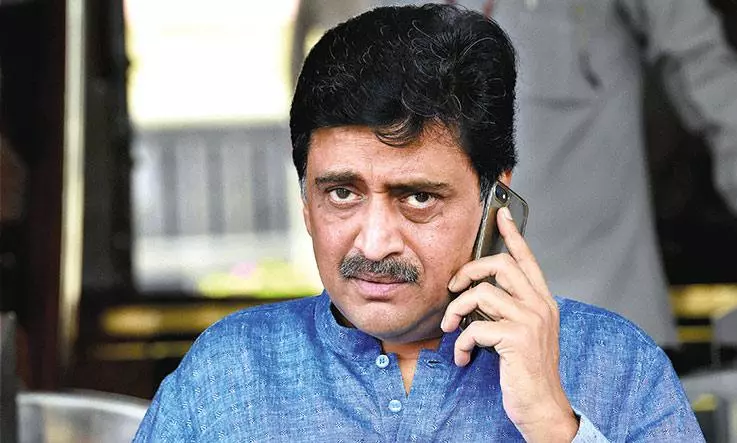
Forced to resign as CM on Adarsh scam, Ashok Chavan may join BJP
text_fieldsFurther fortifying the speculation of his defection to the BJP camp, former Maharashtra Chief Minister Ashok Chavan has become the second senior leader to quit after Baba Siddique. Speculations that have been circulating since 2022 regarding his potential departure to join the BJP.
Chavan, who hails from a politically influential family with roots in the Congress party, submitted his resignation in a terse letter addressed to State Congress President Nana Patole, effective from the afternoon of February 12.
This move marks another setback for the Congress party as it braces for the upcoming 2024 Lok Sabha elections. Just days before Chavan's resignation, former Maharashtra Minister Baba Siddique announced his departure from the Congress after 48 years of association, opting to join Maharashtra Deputy Chief Minister Ajit Pawar's Nationalist Congress Party (NCP).
Ashok Chavan, the son of the late Shankarrao Chavan, a prominent figure in Maharashtra politics, commenced his political journey in 1986 as the general secretary of the Maharashtra unit of the Congress party.
He later transitioned to national politics, securing a seat in the 8th Lok Sabha in 1987. Over the years, Chavan has held various ministerial positions in Maharashtra, including roles in public works, urban development, and home affairs.
Chavan's tenure as Chief Minister in 2008 was marred by controversy, particularly in the aftermath of the 26/11 Mumbai terror attacks, and he was ultimately compelled to resign in 2010 following his implication in the Adarsh Housing scam.
Despite these challenges, Chavan staged a comeback in 2014 by winning the Nanded Lok Sabha seat, defying the 'Modi wave' that swept through the country during the general elections.
However, Chavan faced defeat in the 2019 Lok Sabha elections, losing his Nanded seat to Pratap Patil Chikhalikar of the BJP. With his resignation from the Congress party, speculations are rife about Chavan's next political move and the potential implications for Maharashtra's political landscape.





